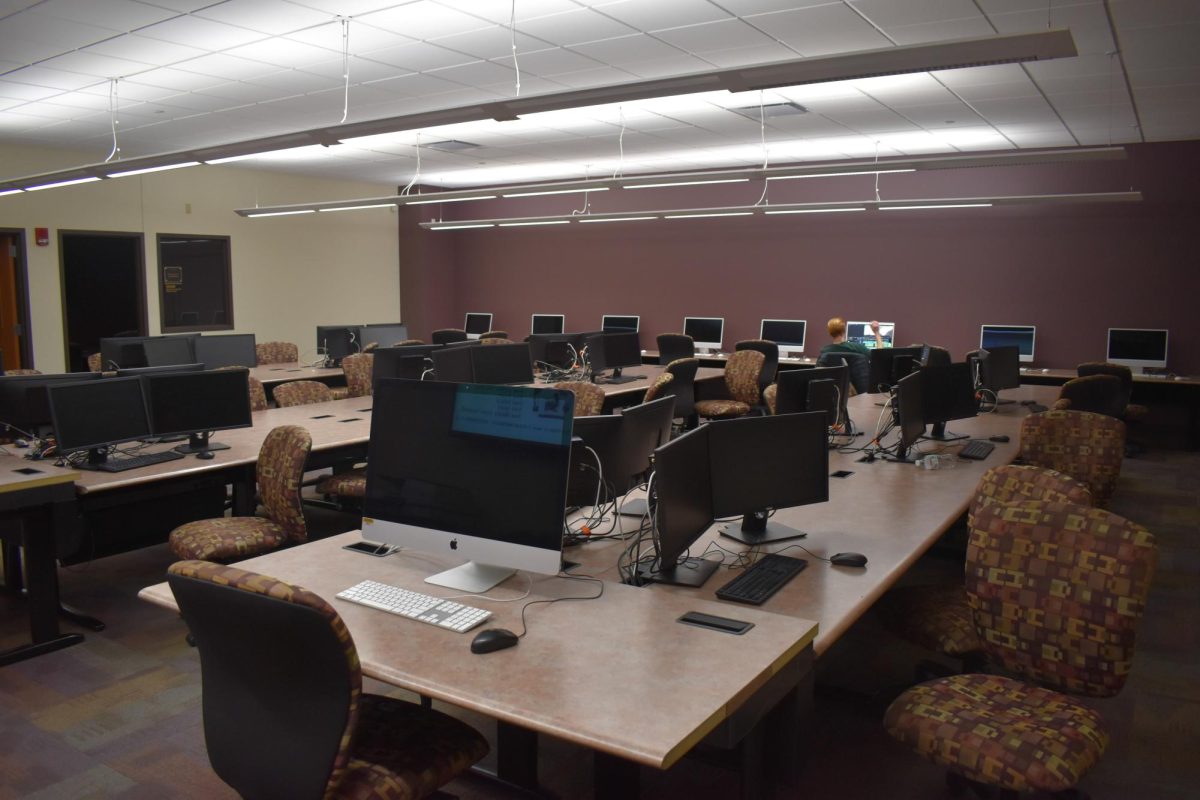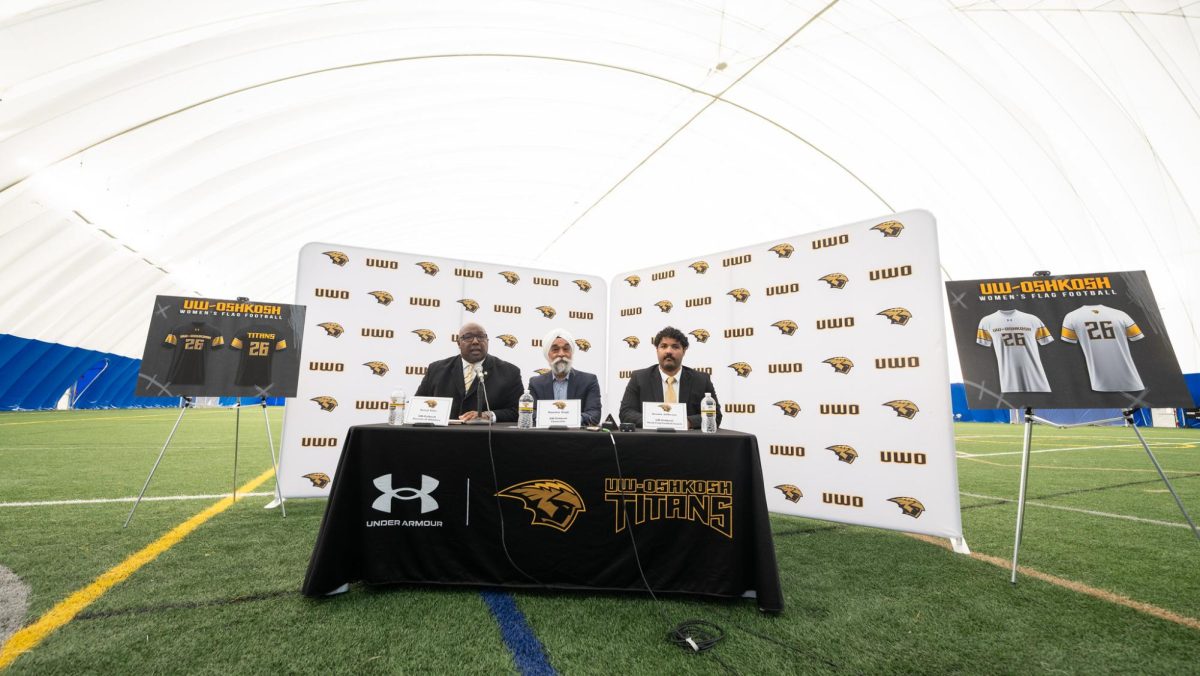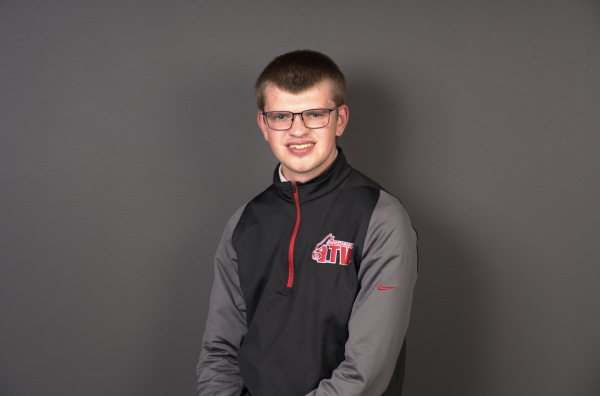Amid concerns General Access Labs would be cut, UW Oshkosh officials confirmed the labs would not be closed.
“To date, IT has not submitted any proposals, nor have we received any feedback from the administration on closing the general access labs,” UWO Chief Information Officer Mark Clements said.
While there are no plans to completely remove any access labs, the university is looking to make them more cost-effective as the labs go largely underused as students complete much of their school work on personal computers.
“Most UWO students have their own laptops or desktop computers, and IT has seen a significant decline in the need for general access labs since they were first implemented,” Clements said. “Our initial review of current usage data shows that a significant percentage of general access lab equipment remains unused throughout the semesters.”
On the UWO campus, there are five different labs, not including those in residence halls. Usage of the labs does vary, with Swart Hall being the lowest, and Polk Library being the highest.
Though the use of labs have declined, UWO students expressed their need to have access to these spaces.
“A lot of these students utilize the labs for assignments they can’t submit on their own personal devices. If the chancellor takes that away from [students], then what does that mean for those students?” student Gianna Goodermuth said.
According to Clements, each lab computer costs the university about $1,000 and is replaced every four years. Scaling down the number of lab computers would help save the university costs of buying, replacing and repairing them.
“From a campus perspective, reducing the number of computers we need to purchase and maintain would lead to cost savings, as well as a reduction in staff time spent supporting them throughout their lifecycle,” Clements said.
Provost Edwin Martini confirmed that the university has not made any recommendations to close any of the general access labs. However, he is looking at ways to save on costs while still providing students with necessary resources.
“As we are currently doing with a lot of things, we want to make sure that we are making the most effective use of our resources, including the [computer labs] or printer space — all while making sure students have the space they need.” Martini explained.
Currently the vision is to have a blend of classrooms and lab space while also considering that most students will be bringing their own devices onto campus. One goal is to implement technology for printing from students’ devices.
“UWO is undergoing big changes, and it’s important that IT continues to align with the evolving needs of the campus and our students.” Clements said.
____________
Despite a rumor of a potentially imminent closure, the General Access Labs are here to stay in some form coming out of university restructuring.
This rumor reached students such as Gianna Goodermuth, who sees the labs serving their purpose to this day.
“A lot of these students utilize the labs for assignments they can’t submit on their own personal devices. If the chancellor takes that away from (students) then what does that mean for those students,” Goodermuth questioned in an email interview, “the labs are there for a reason and they are being utilized so I’m not entirely sure why it’s even a topic of discussion.”
Ten years ago, the role of the campus computer lab was clear-cut: Students needed computer access to do their schoolwork, and rooms lined with dozens of computer terminals were a common sight on every college campus. Today, demand for access to campus computer terminals is in decline, prompting higher-ed Information Technology leaders to question if it makes sense to keep them.
“(Previously) students needed computers, they needed access to computers, we provided them access to computers through the computer lab,” said Antony Awaida, CEO of virtual computer lab provider Apporto in a during a 2023 conference. “Increasingly, students have their own computers and to some extent they have a preference for using their own computers. So in this environment, what is the role of the computer lab?”
Locally, both Chief Information Officer Mark Clements, as well as Provost Edwin Martini agree with these statements. On the UWO campus, there are five different labs (Not including Residence Halls, partially maintained by University Housing, or Reeve Union), which Clements explained the IT department is responsible for. Usage of the labs does vary, with Swart Hall being the lowest, and Polk Library being the highest.
“Most UWO students have their own laptops or desktop computers, and IT has seen a significant decline in the need for general access labs since they were first implemented. Our initial review of current usage data shows that a significant percentage of general access lab equipment remains unused throughout the semesters. As a result, our team is assessing how we can optimize campus spaces and ensure resources are used wisely,” Clements said.
Each computer costs the university $1,000 and is replaced every five years per university policy.
Explaining the situation, Provost Edwin Martini said that University Clements and himself have had some conversations regarding the matter, mentioning the decline of usage.
“As we are currently doing with a lot of things, we want to make sure that we are making the most effective use of our resources, including the (computer labs), or printer space – All while making sure students have the space they need.” Martini explained.
When asked if the University has made any recommendations to close the labs, Martini replied, “No! Absolutely not … If you look at a building like Sage (Hall), there are a number of (computer) labs in there, and most of them are dramatically underutilized, particularly when you look at the large (computer labs).”
Both Martini and Clements explain how conversations have not even included the library, with most conversations only including the smaller labs (Such as those in the academic buildings.)
“We are 100-percent committed to having access computing in the library,” Martini said, mentioning how numerous demographic groups have weighed into the future Polk Library.
Currently the vision is to have a blend of things, classrooms, lab space, while also considering how students will be bringing their own devices onto campus, with technology for print from devices.
National IT journal EdScoop reports that across the country, while some IT leaders are excited at the prospect of moving past old-school computer labs, challenges remain. Moving to cloud-hosted environments can be pricey and time-consuming and educating students about how to access them takes effort. Many audience members watching the 2023 Educause webinar reported that their institutions already offer virtual computer access, but it’s not widely used by students, faculty or staff outside of engineering departments.
University administration detailed that there is no timeline to any projects concerning access labs, however building shuttering, as well as the demolition of former buildings such as Webster and Donner are scheduled to be complete, as soon as this winter. No matter what outcome is decided, student input will be at the forefront.
“UWO is undergoing big changes, and it’s important that IT continues to align with the evolving needs of the campus and our students.” Clements said.















